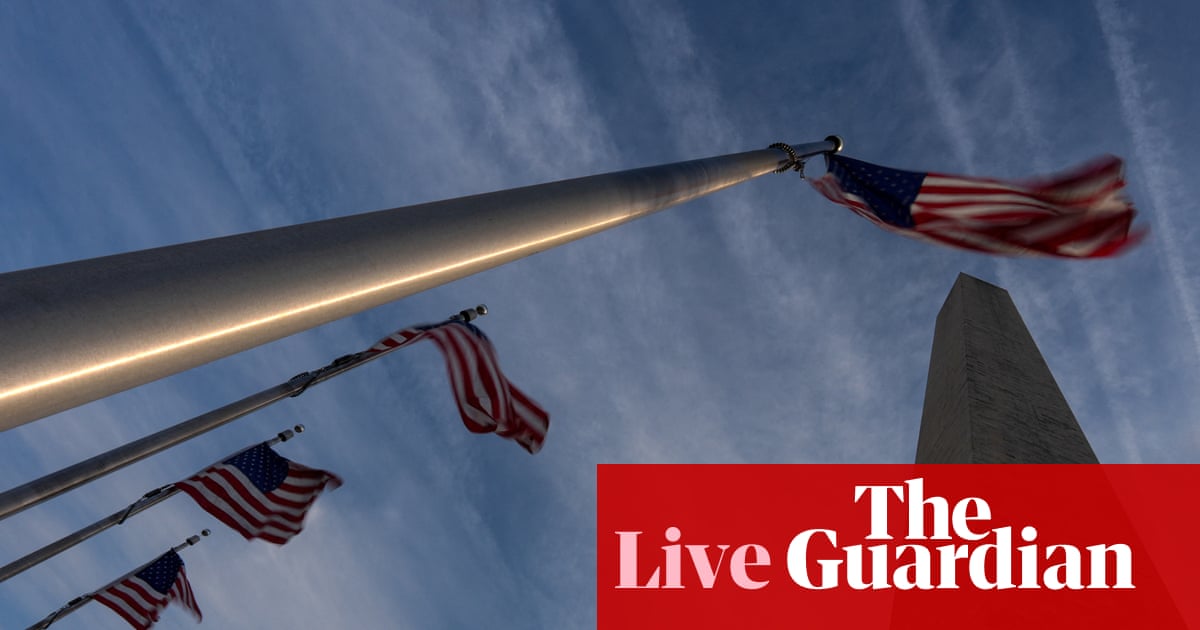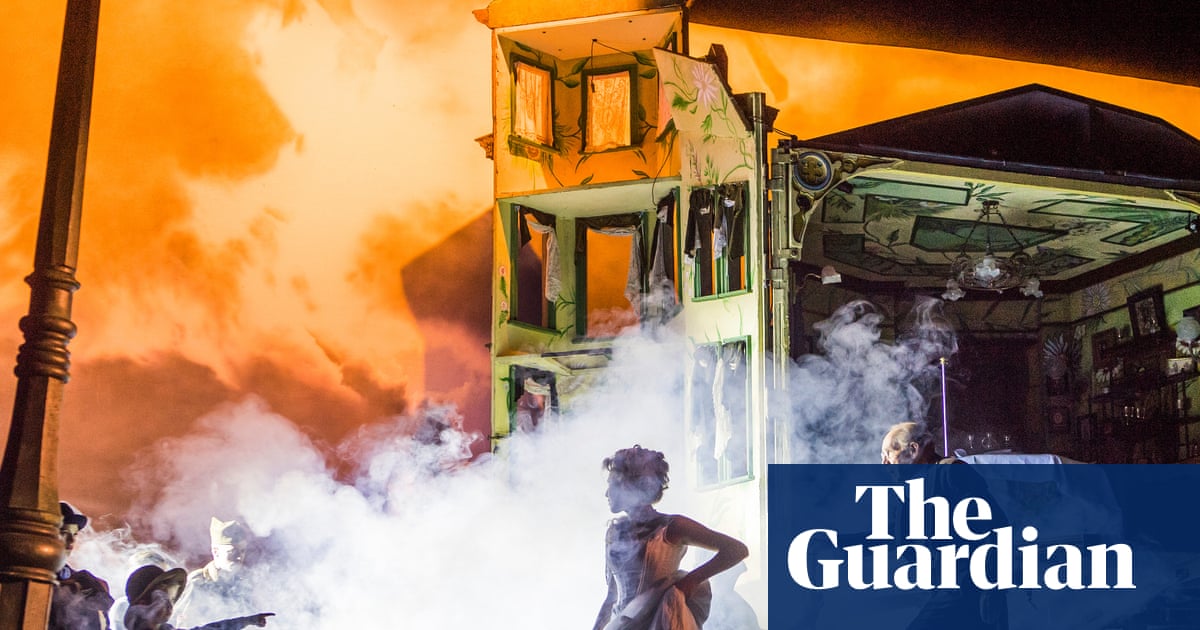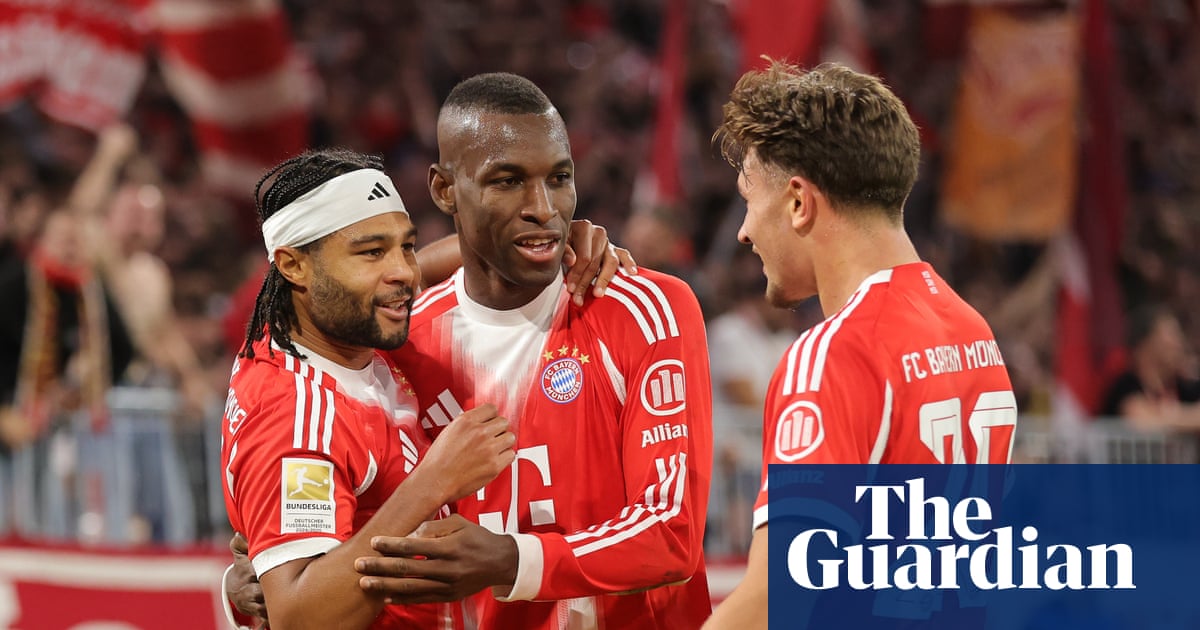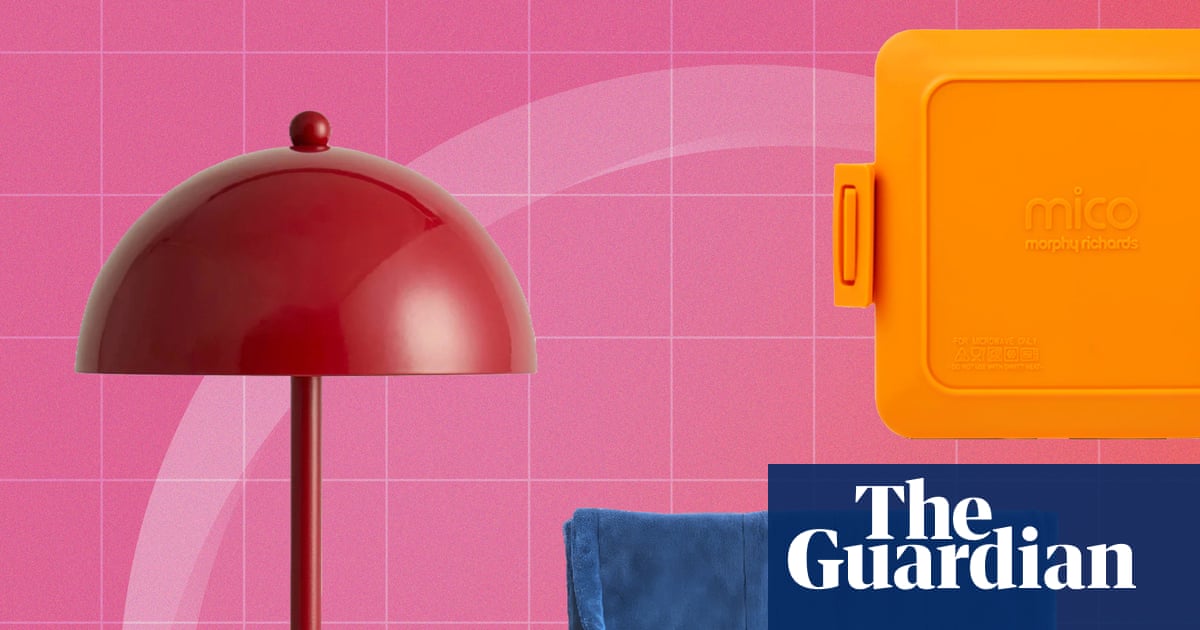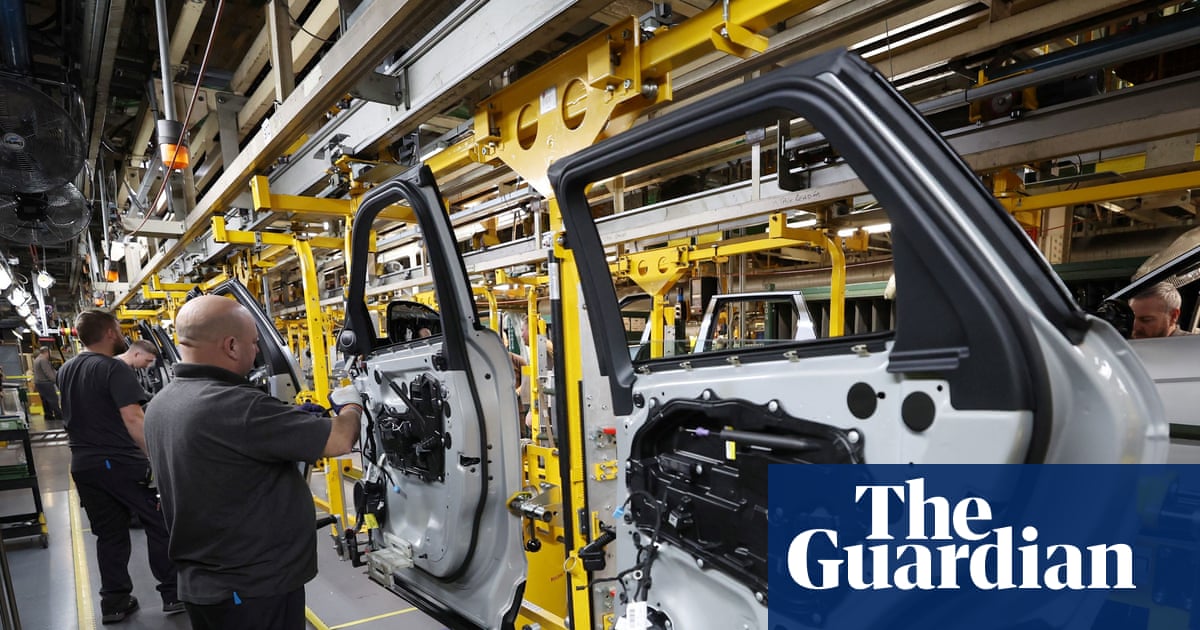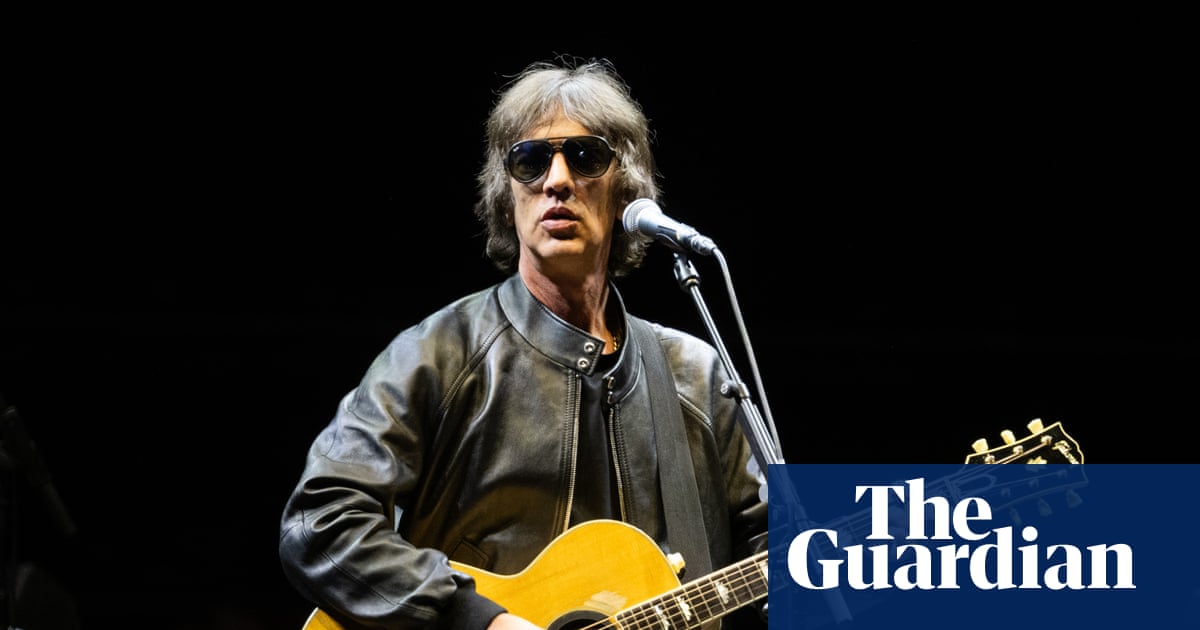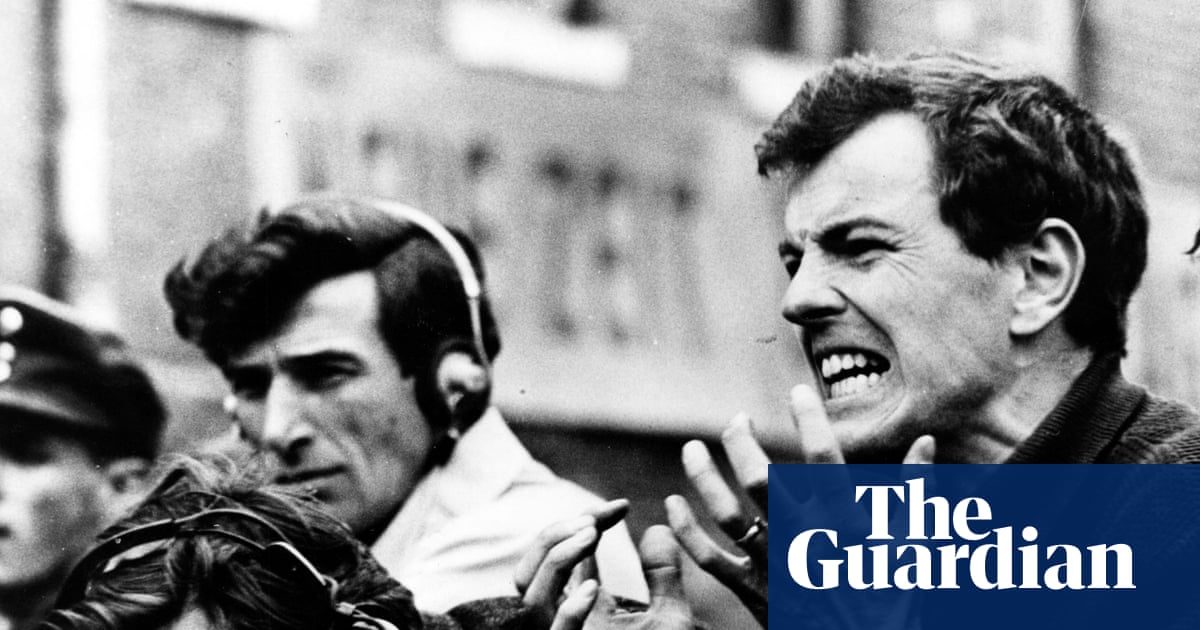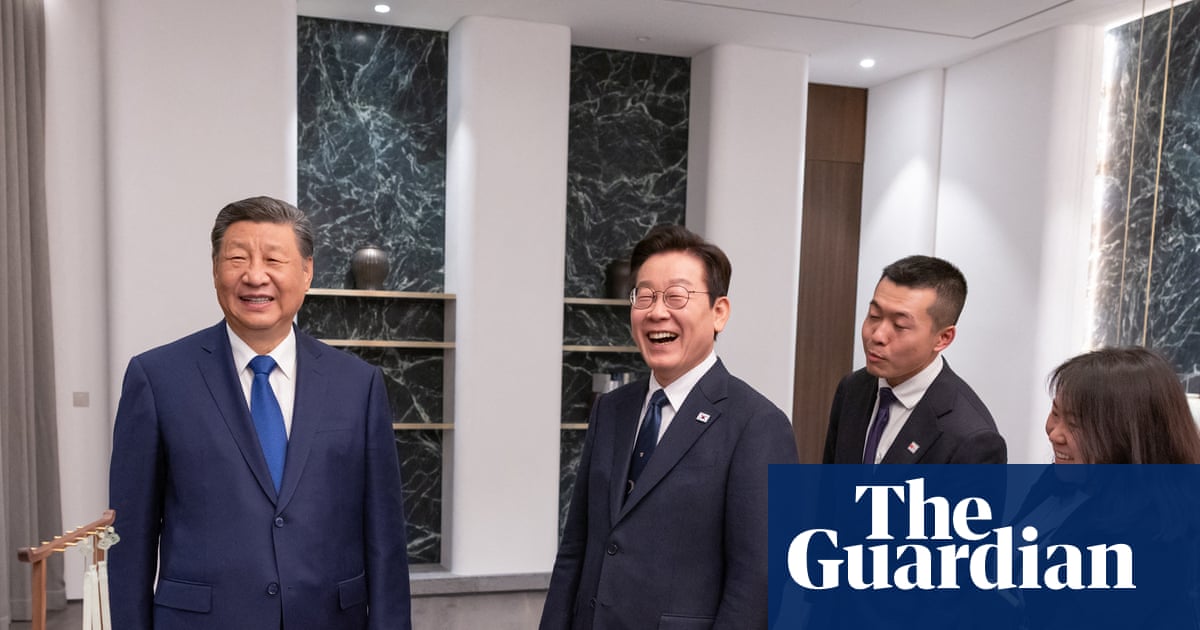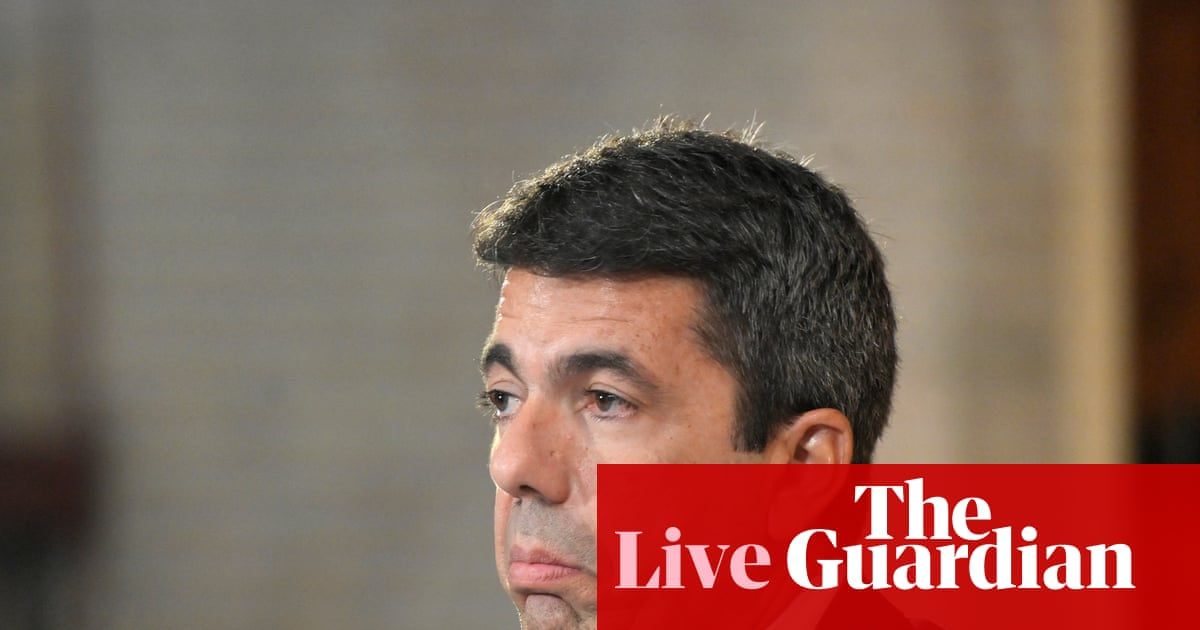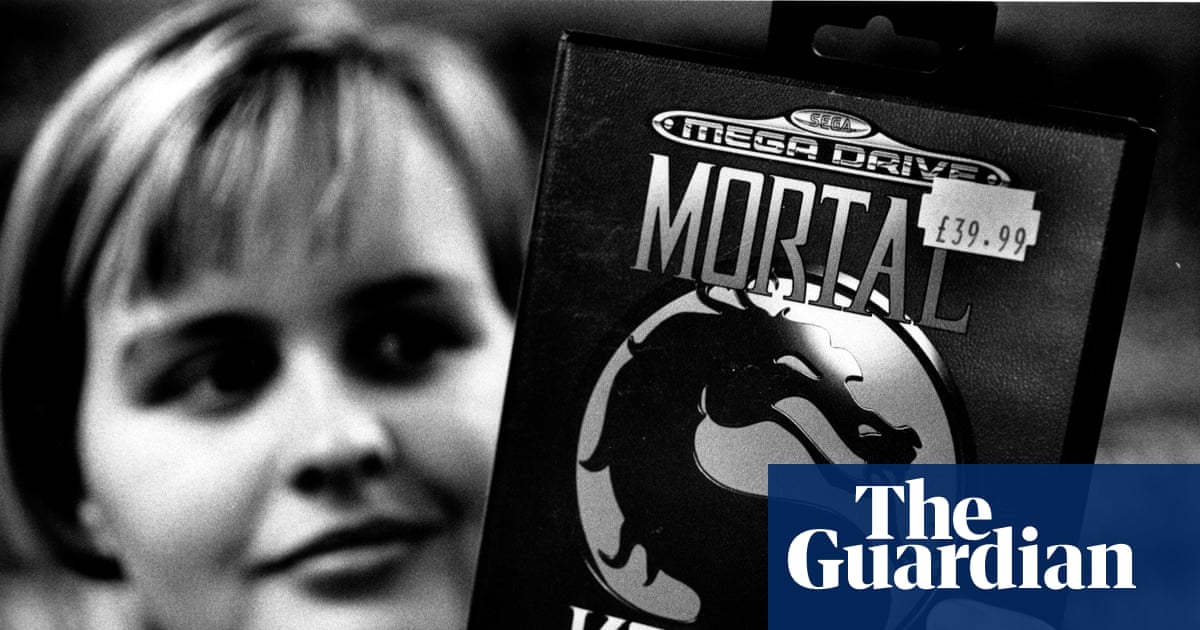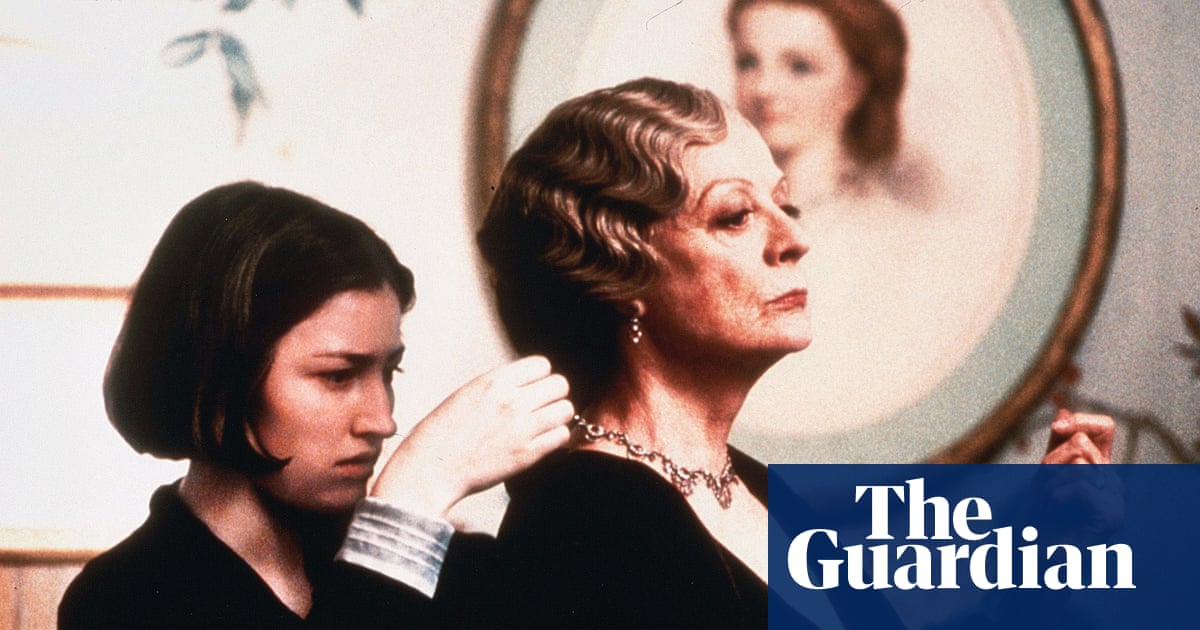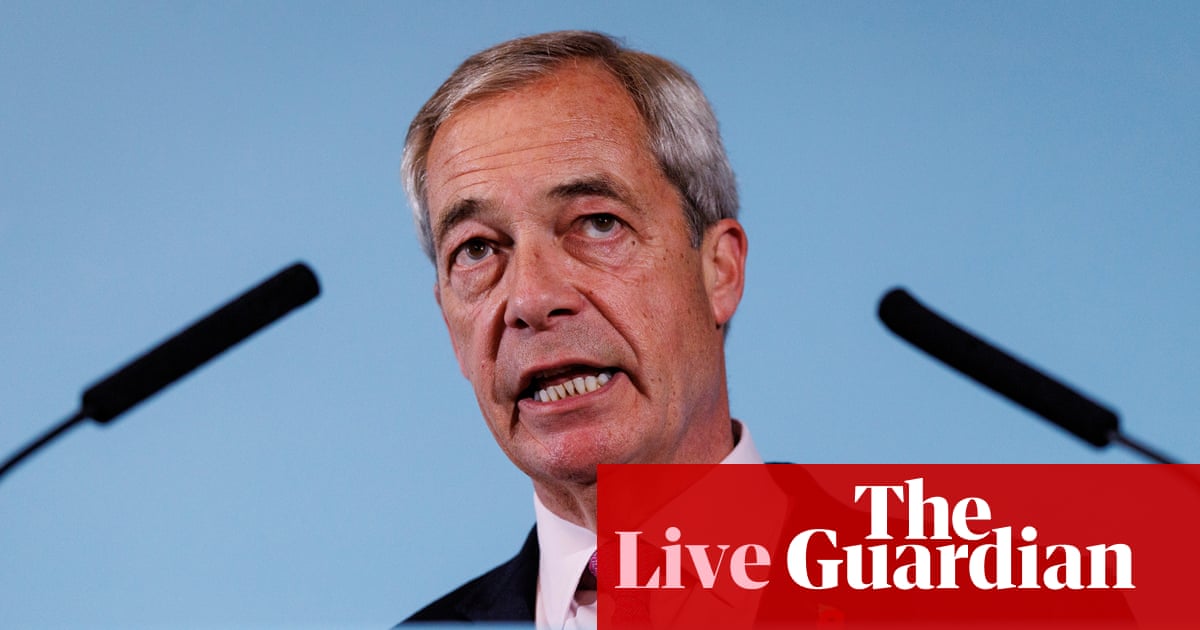Backstage at the Rock la Cauze festival in Victoriaville, Canada, where Boston punk-rock institution Dropkick Murphys are headlining, founding bassist/singer Ken Casey is experiencing an uncharacteristic moment of anxiety.
“We have concerns about going back over the border tonight,” he says, gravely – not for the illicit reasons touring musicians usually fear border crossings, but because Casey’s regular on stage rants against Donald Trump have gone viral. “We’re not worried about being arrested,” he adds. “But we have a show in New York tomorrow. Are we gonna get harassed or held up? We used to come over that border and they’d be, ‘Dropkicks! Come right through!’ But what’s it going to be like now?”
By “now”, Casey means during the second Trump presidency, which has brought the political element always present within Dropkick Murphys’ bolshie, Pogues and Clash-influenced bruisers to the fore. The group’s resistance has found its sharpest expression at their shows, where their anthem First Class Loser is accompanied by videos depicting Trump and former chum Jeffrey Epstein, while Casey’s skirmishes with a vocal minority of Maga Dropkicks fans in the mosh pit have lit up social media. He admits these fans often provoke the worst in him. “How do you know if someone’s in a cult? They hold up a hat all fuckin’ night,” he rages in one clip.
“People tell me, ‘You didn’t use-ta soapbox like this’,” he says on our video call, gathering steam. “Well, we didn’t use-ta be in the midst of an authoritarian takeover!”
Dropkick Murphys are still commanding big blue-collar crowds as they approach their 30th anniversary in 2026. Over the years they’ve scored numerous US Top 10 albums, Bruce Springsteen collaborations and a platinum-seller in the form of civic anthem I’m Shipping Up to Boston, boosted by its appearance in Martin Scorsese’s The Departed. But their value system, Casey says, hasn’t changed since the now seven-strong band formed with the aim “to be a voice for working people”. Class and the labour movement are key to the 56-year-old’s identity. “My father died when I was very young. I was raised by my grandfather, a labour organiser who instilled in me the value of a union. In the Boston suburb where I was raised, everyone owed their lives to a union job. It put a roof over our head.”
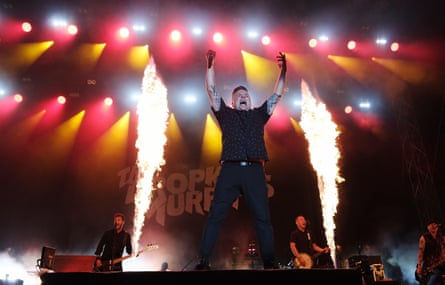
The Boston of Casey’s youth was heavily Irish-American. “The English love to call us ‘plastic paddies’, but I’ve never thought of myself as Irish – I’m Boston Irish, the people that fought against the most Wasp-y, keep-the-Irish-down place that ever existed,” he says, referring to how Irish refugees fleeing the great famine of 19th-century were targeted by anti-Catholic, anti-immigrant groups and scorned by the English Protestant Puritans who had settled America. “To go from those trenches to positions of power in city hall, on the railroad and in the utility companies led to my generation being able to have the middle-class life.”
He pauses for a second, but he’s not finished: Casey would make a great labour organiser himself. “When that’s your story, you need to be willing to aid the culture that’s coming next. One immigrant culture can’t close the door behind them, especially not in America. We’re all immigrants here.”
A tearaway in his youth, Casey quit drink and drugs before he reached 21, “because otherwise I’d be in prison,” he says. “I had a big problem as a teen.” He ploughed his energies into the hardcore punk scene surrounding Boston venue the Rathskeller, AKA the Rat. “Punk-rock was the soundtrack to my friggin’ mayhem. I was a rebellious kid, I liked the underdog vibe.” In 1996, now booking shows at the Rat, a co-worker bet him $30 he “didn’t have the balls to start a band on three weeks’ notice”. Never one to back down from a wager, Casey formed Dropkick Murphys.
His identity was stamped all over the group. Before they even used Celtic instrumentation – the Dropkicks are the rare punk band to field a bagpiper – he says the embryonic Dropkicks “sounded like [1960s Irish folk group] the Clancy Brothers meets the Ramones – the delivery, the melodies, the lyrical content. It just naturally poured out of me.”
Their beginnings were hardscrabble: pressing their own singles, booking their own shows and touring in an old Boston transit bus, for reasons of poverty and pride. “We peeled the roof off under a low bypass,” he grins. “We toured for two more years with that roof open like a convertible. When it rained, I held an umbrella over the driver.”
By the 21st century, they had become staples of the US punk-rock circuit, their annual St Patrick’s Day shows among Boston’s hottest tickets, performing and recording with their heroes. “We play Billy Bragg’s There Is Power in a Union over the PA every night before we go on stage,” Casey says. “He opened our St Patrick’s show last year with it and then played Worker’s Song with us. Afterwards, he said, ‘I felt like I was in the fuckin’ Clash for three minutes!’” Springsteen, another member of the Dropkicks’ extended family, recorded their Rose Tattoo for a charity single after the Boston Marathon bombing, and sang Peg O’ My Heart with Dropkicks in Boston, “back when my grandmother Peg was still alive”, says Casey. “He came on with her for the encore – we had to pry her off Bruce’s arm to get her off the stage. I’m almost shocked a guy of that level was so down-to-earth. But he’s always had an affinity with punk. Bruce still walks the talk.”
“Walking the talk” matters to the Dropkicks; their merch is made in the US by union-approved manufacturers, while their Claddagh Fund supports non-profit organisations across Boston. “We were pretty beloved in our city, whether people liked our music or not, because we gave a lot back to the community,” Casey says. Not any more, however. “Now a lot of people in my circles say ‘Fuck Dropkick Murphys’,” he adds, lantern jaw clenching. “Although never to my face. They despise me and the band.”
after newsletter promotion
It’s clear that, for Casey, the political is personal. His sense of betrayal regarding “the many rank-and-file union members who are now Trump voters” is palpable. “They don’t think Trump’s coming for the unions, but he’s coming for the unions, trust me. I tell Maga friends of mine: Trump wouldn’t piss on you if you were on fire. It’s about total control for the rich. It’s class war.”
What is the magic spell Trump has managed to cast over a demographic who were until recently, Casey says, “in lockstep with Dropkicks’ beliefs”? “Trump offered them a chance to say out loud things people used to have to whisper to their friends,” Casey spits. “Racism, cruelty, jokes about disabilities. A lot of white people in America believed whites will not be in control any more, especially after Obama. This is their last, desperate grasp to hold control.”
The Dropkicks have met this grim moment with records that have transformed their previously cartoonish riot music into something more sober, biting and heartfelt. Two acoustic albums – 2022’s This Machine Still Kills Fascists and 2023’s Okemah Rising – set unrecorded Woody Guthrie polemics to their music. “Woody’s grandson Cole told his mom Nora, ‘Grandpa would’ve liked these guys’,” Casey beams proudly. “It made us better musicians, doing it all acoustic. But that left us with a hunger to go electric and be a punk-rock band again.” Which brings us to this year’s For the People, which opens with Who’ll Stand With Us? A key lyric: “The working people fuel the engine / While you yank the chain.”
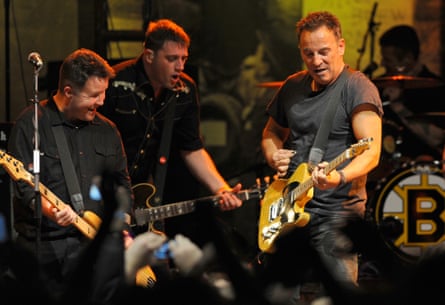
In another viral clip from a recent show, Casey bets a fan in a Maga shirt $100 that it wasn’t manufactured in the US; it was, inevitably, manufactured in Nicaragua, and Casey swapped the offending garment for a union-made Dropkicks T-shirt.
“If America is ever going to go back to some semblance of normal, we have to bring the temperature down, we need to be able to talk to each other,” Casey says, referencing that night. “I talked to that guy afterwards, and he said, ‘I don’t let politics get in the way of family, and I consider you family’. I could have jumped down his throat, but he seemed open to reason.” He pauses. “That’s rare for Maga, though. Other days, I’m like, ‘Fuck this, I don’t even want to know these people, if this is how they think and behave’. Do I want to have a dialogue with these people? No. I’m just hoping the fever will break. I don’t need them to have a ‘come to Jesus’ moment on the difference between right and wrong – I just need them not to support what’s happening.”
Does he fear blowback for his outspokenness, like that suffered by Stephen Colbert – or worse?
“Unlike Stephen, we have no parent company, so we can say what we want,” he says. “Regarding our safety … whatever,” he snarls, disdainfully. “I’ll never have a security guard or anything like that. But you gotta keep your head on a swivel a little bit. Back in the day, we always had a Nazi element gunning for us, but you could see them coming. Now you don’t know who’s who. I’m not sure what’s keeping other people quiet, though, especially in punk-rock. Where’d everyone go? They had the balls to speak out against Bush back in the day. But Bush didn’t have an army of trolls that come after you. Speaking out against Bush wasn’t going to cost you half your fanbase, potentially.”
In his darker moments, Casey reckons “within a year, this country’s gonna fall on its face, and people are gonna feel the pain: recession, inflation, unemployment. There’s nobody coming to save us.” He says he feels “no excitement or happiness” in the group’s anti-Trump screeds winning them newfound fame. “But maybe there’s a slight sense of validation,” he adds. “I talk to the fans every night. One night, an immigrant told me, ‘I moved here, and my partner is American, we have children, and I live in fear of being deported. My own friends have turned on me, they say I’m taking American jobs.’ He was actually in tears at the end. But he said, ‘I feel like someone is speaking on my behalf’. From the earliest days of this band, we wanted to be involved in something that mattered. So we are. I wish it was a different subject and not quite so important, but …”
He sighs. Maybe the border tonight will be a shitshow, but it won’t change how the Dropkicks operate in this darkest of moments. “We’re sticking our neck out and getting a lot of negative attention,” he adds. “But if we don’t do it now, it might be too late.”

.png) 1 month ago
37
1 month ago
37
